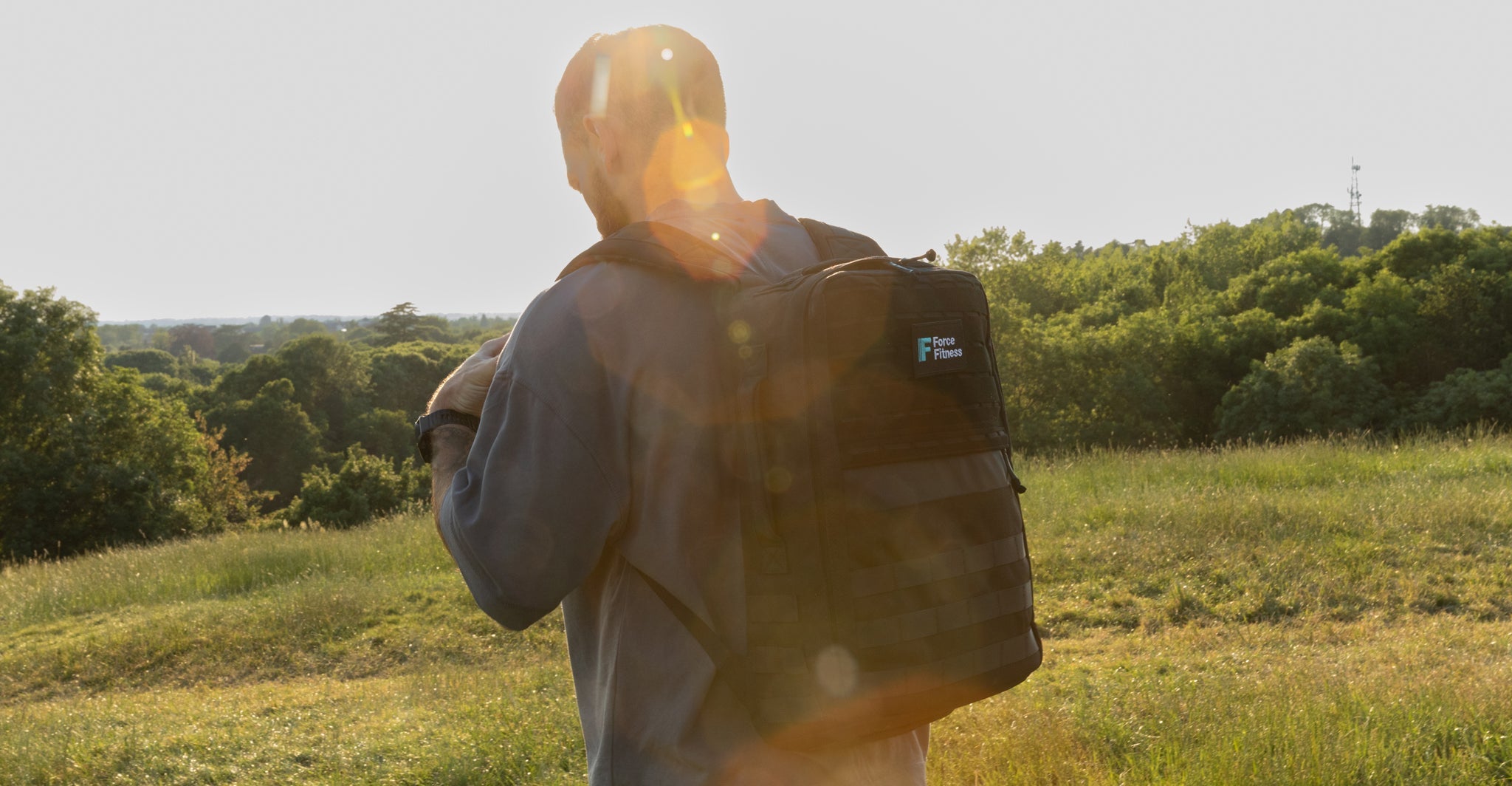
Rucking for burnout - can rucking help you be a better person?
These days, fitness isn’t just about your body. People work out for social connection, confidence, mental wellbeing – and to buffer the stress of modern life. But some forms of exercise can add even more stress to your nervous system. The solution? Finding a way to exercise that gets you fit, strong, conditioned – and more chilled out.
What if the best way to deal with stress is as simple as going for a walk with a weighted pack? Let's explore how rucking – that wonderfully straightforward combination of walking with weighted gear – might be the answer to becoming a healthier, happier, better version of yourself.
Is rucking good for stress?
The short answer? Absolutely. When stress builds up, our bodies produce cortisol, and we need to get rid of it by moving. But high-intensity workouts can add to the stress, giving our bodies one more thing to recover from. Rucking combines a steady workout with time outdoors in nature, to burn off stress hormones while boosting your endorphins and dopamine.
Unlike high-intensity workouts that can add stress, rucking is challenging enough develop cardio fitness and muscle endurance, but gentle enough not to trigger stress responses. The steady rhythm of walking creates an almost meditative state that calms the nervous system, and nature’s backdrop gets you away from it all.
Rucking for stress and burnout
Burnout isn't just feeling tired – it's a state of chronic physical and emotional exhaustion. It can leave you feeling negative, detached, and wanting to hide away from the thing you enjoy. Many burnout recovery specialists recommend activities that combine gentle exertion with natural settings – rucking ticks both these boxes.
How can rucking help reduce your risk of burnout?
• Physical relief - helps get rid of stress and improve sleep
• Mental space - time away from screens and notifications
• Connection – connecting with nature, friends, or with yourself
• Achievement - completing routes provides tangible accomplishments
Why is rucking good for stress?
Unlike meditation or breathwork (which can be difficult when you're wound up), rucking channels that restless energy. The weight on your back grounds you, creating a physical sensation that can help settle anxious thoughts.
Studies show that time spent in nature lowers blood pressure, lifts mental fatigue, and improves mood. There's also something primal about carrying weight through natural settings. The basic, functional movement pattern satisfies something that’s missing in modern life.
Beyond stress reduction, rucking offers a lot of mental health benefits, from managing anxiety to improving your sleep. The combination of rhythmic movement, natural surroundings, and manageable challenge creates ideal conditions for what "flow state" where you're fully immersed in an activity.
5 ways rucking will make you a better person
1. You'll become more resilient
Regular rucking builds mental fitness as well as cardio and conditioning. You'll start approaching difficulties with the same measured pace and determination that gets you through tough rucks.
2. You'll be a fitter, stronger parent
Children need parents with energy, patience and stamina. Rucking builds physical capacity to keep up with energetic youngsters – or even to carry them for miles. And you’ll be modelling healthy stress management.
3. You'll prioritise me-time
In a world where everyone wants a piece of you, rucking carves out space just for you. By doing regular rucking sessions, you're acknowledging your own needs which helps prevent burnout especially if you have caring roles in life.
4. You'll develop a healthy relationship with challenge
Rucking teaches you to embrace discomfort. This can transform how you approach difficult conversations, career changes, and personal growth opportunities.
5. You'll be ready for anything
There's a confidence that comes from knowing you can carry substantial weight over significant distances. This creates a foundation of self-reliance that you can draw on when unexpected challenges come up.
How to ruck to avoid burnout
Start small – begin with a comfortable weight (we recommend 10%-15% of your bodyweight) and distance, gradually building as your body adapts.
Be consistent – keep regular rucking sessions as non-negotiable appointments with yourself.
Disconnect – leave technology behind when possible, or at least set your phone to silent and put it in a pocket.
Tune in – pay attention to your surroundings, your breathing, and the sensation of movement.
Find community – consider joining rucking groups for social support.
Burnout is a modern epidemic in our 24/7 connected, achievement-obsessed culture. What if the solution isn’t more productivity hacks or digital solutions? Maybe it's as straightforward as putting weight in a ruckpack, stepping outside, and remembering what our bodies were designed to do – move with purpose and presence. Next time you're feeling overwhelmed, how about reaching for your weighted pack instead of your phone – we think you’ll like it.

















